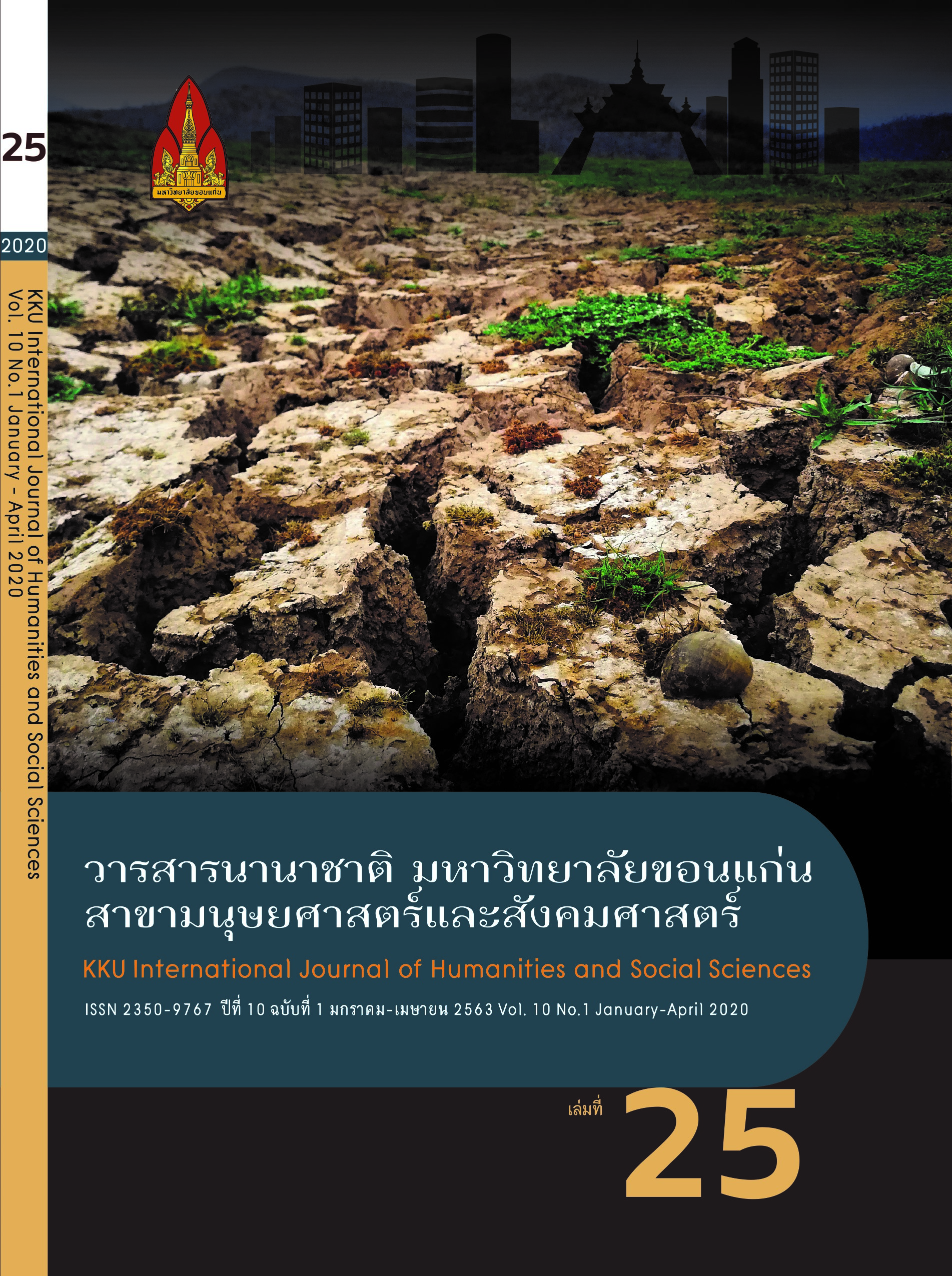From Human Security to Women Security: Enhancing the Role of Women in Addressing Water Shortage Issues in the Lower Mekong River
Main Article Content
Abstract
This paper will discuss on women security in the context of upper hydropower dams in Mekong River Delta. Lack of water in lower stream leads to water conflict and food insecurity. However, human security, is often state-centric and is presented as though it were gender-neutral with an expression of the masculine while women groups, poor women households are most affected by water conflict but their role in water management is often less being considered. The objectives of this study are to understand the types and nature of conflicts over scarce water resources, how these conflicts impact women, and the role that women can play in water management and water conflict resolution in Mekong River Delta. By enhancing the role of women in water management in agriculture sector in the Mekong River Basin, food security and peace of the community will be improved. This paper’s research methodology is based on desk-research to find out secondary sources. The aim of this paper is to prevent cultural and structural violence towards women by empowering women in a meaningful way to play a decision making role in water conflicts resolution process for local food security.
Article Details
References
Cleaver, F., 1998. Incentives and informal institutions: Gender and the management of water. Agriculture and Human Values, 15(4), pp.347-360.
Galtung, J., 1964. An editorial: what is peace research. Journal of Peace Research, 1(1), pp.1-4.
Galtung, J., 1996. Peace by peaceful means: Peace and conflict, development and civilization (Vol. 14). Sage.
Gehrig, J. and Rogers, M.M., 2009. Water and conflict: incorporating peacebuilding into water development. Catholic Relief Services.
GWP, 2010. Dublin-Rio Principles, http:// www.gwp.org/TheChallenge/What-isIWRM/Dublin-RioPrinciples/
Hudson, H., 2005. ‘Doing’security as though humans matter: A feminist perspective on gender and the politics of human security. Security Dialogue, 36(2), pp.155-174.
Lammers, E., 1999. Refugees, gender and human security: a theoretical introduction and annotated bibliography. Intl Book.
Mazurana, D.E. and McKay, S., 1999. Women and peacebuilding (No. 8). International Centre for Human Rights and Democratic Development 1999.
Miall, H., Ramsbotham, O. and Woodhouse, T., 1999. Contemporary conflict resolution: The prevention, management and transformation of deadly conflict. Cambridge: Polity.
Parpart, J., 2009. Fine words, failed policies: gender mainstreaming in an insecure and unequal world. Leckie, J.(2009) editor, Farnham: Ashgate.
Ray I., 2007. Women, water, and development. Annu Rev Environ Resour 32:421–449.
Tickner, J.A., 1992. Gender in international relations: Feminist perspectives on achieving global security. Columbia University Press.
Tickner, J.A., 1999. Feminist perspectives on security in a global economy.
UNEP, 1992. Rio Declaration on Environment and Development, Nairobi, United Nations: UNEP.
UNICEF-WHO, 2011. Drinking Water Equity, Safety and Sustainability: Thematic Report on Drinking Water 2011, New York: UNICEF-WHO.
Wallensteen P., 2002. Understanding conflict resolution: war, peace and the global system. Sage, London
Wisotzki, S., 2003. Engendering security discourses in IR: theoretical insights and practical implications. Na.
WSSCC and WEDC, 2006. For Her Its the Big Issue: Putting Women at the Centre of Water Supply, Sanitation and Hygiene, New York: UNEP.


